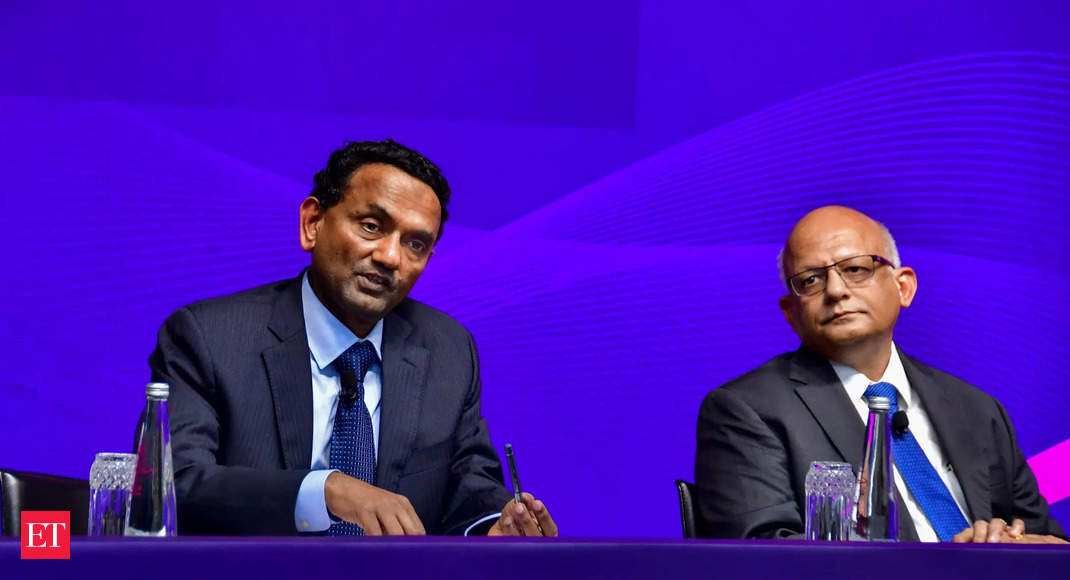At 58, K Krithivasan is among the oldest executives to have taken up the top job at Tata Consultancy Services, the most-valued company at India’s most-valued conglomerate.
At old economy arch-rivals Hindustan Unilever and ITC – that aggressively compete for retail shelf space and consumer wallets – respective top bosses Rohit Jawa, 56, and Sanjiv Puri, 61, belong to an age bracket that amply demonstrates the unmatched value which experience brings to the equation, having negotiated multiple crests and troughs through careers spanning decades.
Older chief executives in companies having mature and complex business streams as well as large P&L statements and balance sheets are getting longer tenures after the pandemic.
Senior executives in their late 50s and 60s are either being appointed or having their appointment terms extended by risk-averse India Inc boards that increasingly prefer perseverance to panache.
ET spoke with several top executives, who discussed the matter on condition of anonymity.
“Having dealt with huge business volatility and uncertainties during the pandemic, boards now want a stable management focused on boosting growth and handling business risks,” said the chief of a top Mumbai-based conglomerate. “CEOs are also fitter health-wise, and seen as capable and driven to lead organisations in a complex business environment.”
Notable extensions
ITC, the biggest company to be based in Kolkata, this month gave a five-year extension to 61-year-old chairman and managing director Sanjiv Puri.
In New Delhi, Gopal Vittal, 56, has been reappointed managing director of Bharti Airtel for five years ending January 2028. In May, Mumbai-based Tata Chemicals reappointed R Mukundan, 55, managing director and chief executive for a further five-year term up to 2028.
The board of Bengaluru-based Infosys, too, reappointed Salil Parekh, 59, in 2022 as managing director and CEO for five years until March 2027.
Parekh has been leading Infosys since January 2018, while Vittal was appointed CEO in 2013. Puri was appointed CEO in February 2017.
When continuity is change
Absence of adequate succession planning in some organisations might also be contributing to this trend, say industry observers.
“Promoters and boards take time to build equations with the CEO and be on the same page. Personal trust and chemistry with promoters and the board matter greatly,” said the chairman of a leading conglomerate, seeking anonymity. “Also, why should one let go of good talent if he or she performs well, is productive and adds heft to the board? It is like a partnership and lends confidence to the CEO to take decisions boldly and focus on growth. A good leader leads to good business and shareholder value.”
Continuity helps navigate the challenges brought about by inevitable business cycles, and that might also be the motivation behind this trend.
“Many of these traditional companies have yet to build a pipeline of senior talent. So why rock the boat?” said Navnit Singh, chairman and regional managing director, India, Korn Ferry International. “However, in new growth areas such as green energy, electric vehicles, batteries, etc, companies are looking at outside talent.”
In March, Tata Power reappointed Praveer Sinha, 61, as MD and chief executive for four years until 2027, while Manappuram Finance reappointed VP Nandakumar as managing director and CEO last month, with effect from April 2024 to March 2029.
“No board and promoter would want to risk it and start all over again at building a relationship with a new CEO,” a consumer-facing company’s chief executive, who also received a similar term extension recently, told ET. “It is a bet that may or may not work. But it has to be done and the only way is thoughtful succession planning.”
Mature, predictable businesses
Most of the corporates run by such senior leaders are stable, profitable and competitive, say executive search firms. These traditional companies are usually managed by CEOs in mid- to late-50s.
“In the past five to 10 years, companies have been performing reasonably well. So, the boards do not want to upset the apple cart and are giving extensions to CEO tenures,” said Korn Ferry’s Singh.
Executive search firms say corporates are also not insisting on hiring younger executives.
“Fifty is the new forty, and executives are also fitter today. Boards are more comfortable with experience and proven capabilities to deal with a challenging business environment,” said K Sudarshan, managing director at EMA Partners India.
Britannia Industries appointed Rajneet Singh Kohli, 48, in September 2022 as its executive director and CEO, while Varun Berry, 61, retained the MD’s role and was elevated to the executive vice-chairman’s post. Hero Motocorp CEO Niranjan Gupta, 52, succeeded Pawan Munjal, who was also chairman, at leading domestic two-wheeler major Hero Motocorp.











